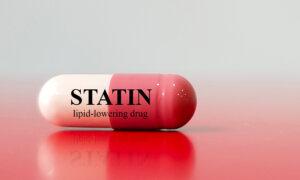It’s not entirely unusual for a dentist to suggest coenzyme Q10 as a good anti-inflammatory supplement for preventing or treating early stages of gum disease. But a new study raises skepticism.
The molecule—often referred to as CoQ10—is known for its anti-inflammatory, antioxidant properties. CoQ10 deficiencies have been found to be deficient in patients with periodontal disease, the inflammation resulting from a bacterial attack in the mouth—commonly called gum disease.
Why CoQ10 Matters
CoQ10 plays a vital role in fueling the cell’s energy cycle, specifically because it synthesizes adenosine triphosphate, the source of energy for every cell in the body—necessary for all tissues and organs to function. CoQ10 also operates as one of the most important antioxidants in a highly complex process that prevents the generation of free radicals. Free radicals are unstable molecules that can attack nearby cells and lead to damage that may reveal itself through a variety of symptoms of poor health.Not only is the role of CoQ10 vital for basic functions of immunity, it also can help the body improve physical performance, making it a popular molecule among elite athletes. Essentially, it keeps us moving and functioning optimally.
Misleading Advice
Dr. Mark Burhenne, a functional dentist who has been recommending CoQ10 for years, also told The Epoch Times that the review article is misleading—despite also being a good study with solid methods and results.“Most supplements need other vitamins and enzymes to be effective,” Burhenne said. “It’s multi-factorial. I don’t like these studies that pick one supplement and narrow in on that. If you’re going to take one supplement and think it’s going to protect you against periodontal disease, it’s just misguided.”
Though the review has gathered and considered a great deal of evidence, it is foolhardy to assume it’s put to rest any inclination that CoQ10 could benefit oral health. It stands as a testament to a body of poor research on the supplement.
The article points out that protocols of the studies it examined vary dramatically in terms of dosing, the amount of time patients were followed, and administration—sometimes CoQ10 is given in gel or liquid forms. Other times it’s given by capsule or tablet.
Some studies didn’t even include dosing, but none of them mentioned more than 90 mg, which Burhenne said is the standard dose recommended for heart health. Literature often recommends 30 mg to 90 mg. He suggests 120 mg for patients with gum disease. The effects may also take up to eight weeks to be realized.
- Exacting of CoQ10 administration, including product, dose, application methods, duration, and timepoints.
- Double-blind studies to avoid bias, which would require using a placebo.
- Pretreatments, instructions after treatment, and oral hygiene instructions. Use of antiseptics and antibiotics should exclude study participants as they kill off even commensal, or good, microbes and can impact one’s overall immunity and influence study results.
- Extended observation periods to note long-term efficacy and clinical relevance.
Combating Gum Disease
Though common, gum disease severity varies and depends on many risk factors, including modifiable ones like smoking and diet. Oral hygiene helps with prevention. Regular dental visits are important for removing the microbial biofilm, called plaque that leads to cavities, gingivitis, and other oral health conditions. Plaque is made up of bacteria, leftover food bits, and saliva.Danenberg suggested taking CoQ10 in the form of desiccated organ supplements from grass-fed cattle, as well as correcting imbalances in the gut microbiome.
“Gum disease is essentially a factor of dysbiosis of the oral microbiome,” Burhenne said, adding that CoQ10 naturally wanes with age but needs to be addressed alongside other deficits.
Additionally, Burhenne warned against using disinfectants in the mouth which destroy the entire microbial community and lower immunity against gum disease and other pathogenic-related invasions.
One final note is to check your sources, he said. Anyone who says CoQ10 has no value, for instance, doesn’t understand the biochemical relationship it has with overall health.
“We have to be very careful about who we are listening to,” Burhenne said. “If I’m not sure, I say that.”






